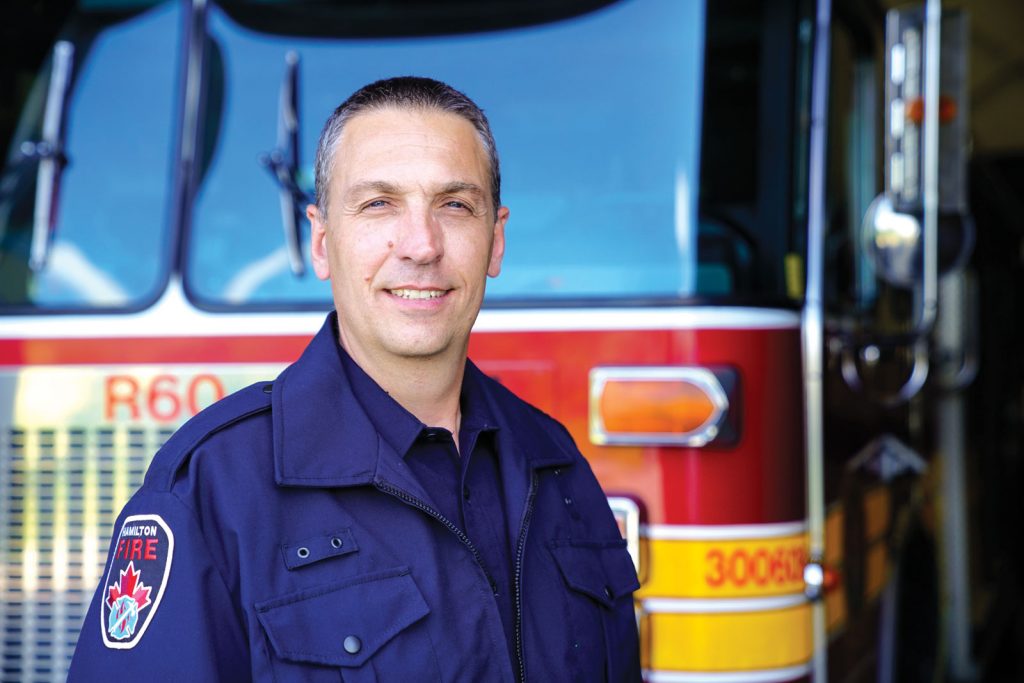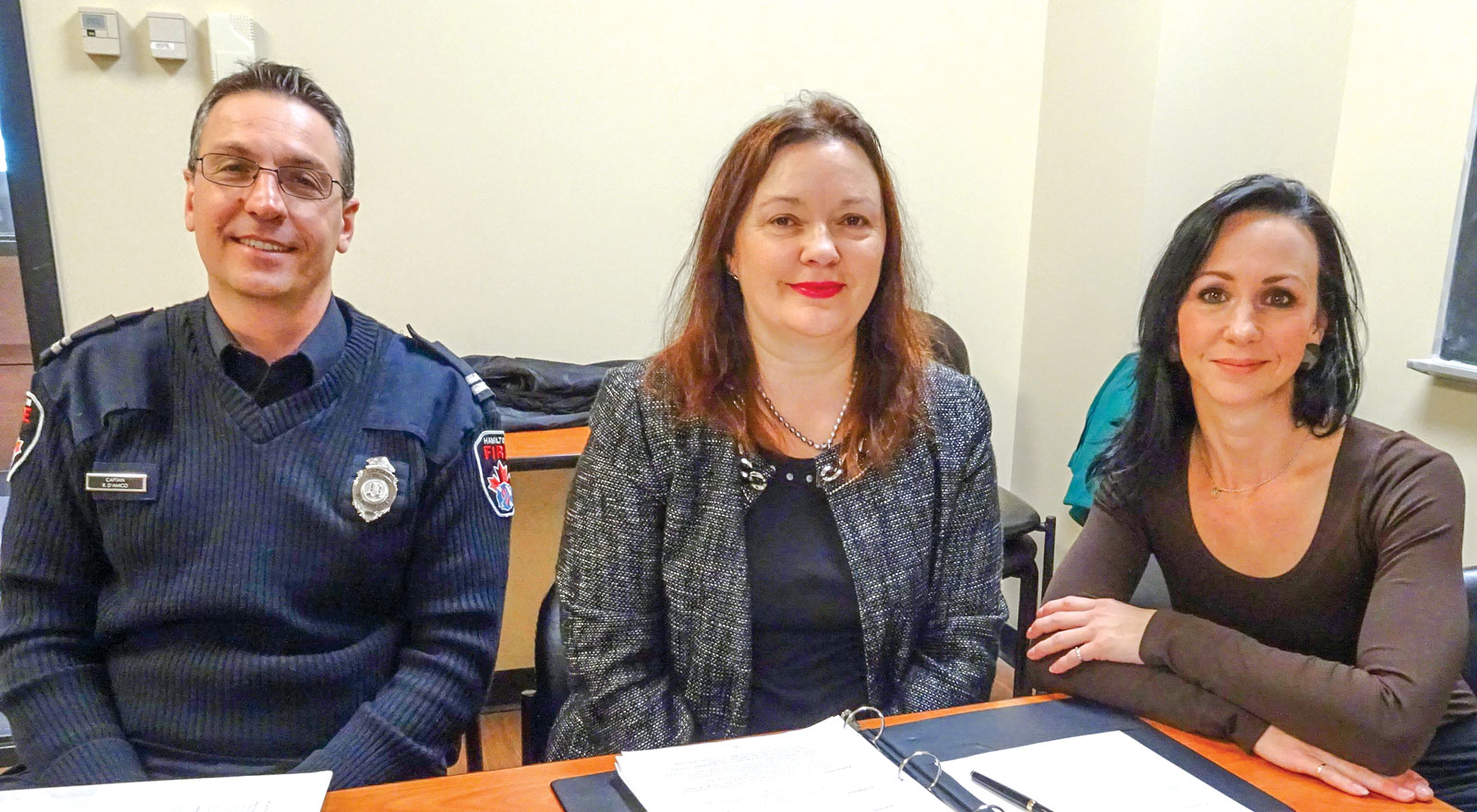By Margaret Lomotan
A national team of firefighters and scientists are working together to conduct and share research that will help firefighters stay healthy at work.
Firefighters work in hazardous and unpredictable environments and face unique occupational risks. They wear heavy personal protective equipment and use tools in awkward positions that can lead to musculoskeletal injuries. And exposure to toxic chemicals and traumatic events increases their risk of physical and mental illnesses. But despite all this, firefighters are committed to serving and protecting their communities, and want to identify effective ways to a have long, healthy career in the fire service.
The FIREWELL partnership began 15 years ago when members of the Hamilton Fire Department approached Dr. Joy MacDermid, a professor at McMaster University’s School of Rehabilitation Science, about their need for research to bridge some major gaps in the health and safety of the firefighting community. At the time, most of the firefighter health research had been conducted with US fire services. Since that initial contact, FIREWELL has published one of the first studies on the working experiences of Canadian women firefighters and investigated the impact of firefighting on career firefighters’ musculoskeletal health, and MacDermid is now the FIREWELL project director.
Robert D’Amico, a captain with the Hamilton Fire Department and secretary of the Hamilton Professional Fire Fighters Association, is one of FIREWELL’s long-standing research champions. “I got involved with FIREWELL because it was a good opportunity to share experiences of firefighter injuries with researchers to figure out ways to lessen these injuries,” he says. “FIREWELL is unique because it combines active-duty firefighters with academics to solve real-world challenges in the fire service.”

Information and collaboration
FIREWELL has successfully brought together firefighters, scientists and stakeholders to exchange information and collaborate on national research projects to advance firefighter health. The team includes a diverse range of participants with respect to types of fire services, contexts, genders, provinces, academic institutions and disciplines.
Front-line firefighters and fire chiefs are actively engaged in all aspects of the FIREWELL projects. “Our members are health conscious, aware of injury risks, and want to help and participate,” says D’Amico, who plays key roles in research design, recruitment and implementation.
“When we first started, we were focused on musculoskeletal health,” says MacDermid. “As time has evolved, we have taken a much more holistic view of health—mental health, social health and other important issues that firefighters have raised for us.”
FIREWELL projects in progress (funded by the Canadian Institutes of Health Research) are looking at the use of wearable technologies to assess the physical demands of firefighting tasks; an exercise program for shoulder pain; the development of a firefighter-specific work limitation scale; mental health resiliency training; and critical incident exposures.
FIREWELL has become recognized as a trustworthy go-to source for research evidence about firefighter health. The latest research by team members and other research groups is shared on an open-access bilingual website (firewell.ca) and social media.
MacDermid says that FIREWELL is always changing and evolving. “We do it by listening to firefighters and by engaging with other firefighter researchers across Canada to do what is most important at the time.”
Margaret Lomotan is the project coordinator of FIREWELL. For more info on FIREWELL, visit firewell.ca














